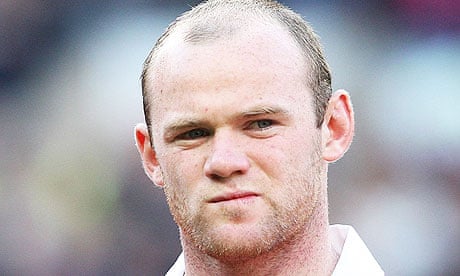Wayne Rooney will never be a secret weapon. There has been too much of everything that catches the eye: talent, fame, success, failure and scandal. But there is a role he is yet to play. Manchester United, at least, must see him as one of the few figures who could upset the characteristic poise of Pep Guardiola's Barcelona in Saturday's Champions League final at Wembley. As it is, Rooney lacks a moment quite like that in his career.
He does have a winner's medal from the tournament already but he had been substituted before Chelsea were beaten on penalties in 2008. Neither he nor anyone else made their mark in the following season when smoothly formidable Barcelona won 2-0. Any player with Rooney's gifts ought to crave a match that will imprint his name on football history.
Something, admittedly, will have to change if a crestfallen United are not to find themselves bewildered as they are ushered towards defeat. On the 2009 occasion, Rooney was employed on the left, with the centre-forward role reserved for Cristiano Ronaldo. Logic suggests the Englishman, moving on to his right foot, could also attack through the middle, but the scheme did not work in practice.
Come Saturday, there is a better prospect of Rooney operating in the centre, whether as the spearhead or behind Javier Hernández. For all the quality in a squad that has taken United to the Premier League title once more, it is still critical that Rooney himself present a threat. Absurd as it sounds, a post in the core of the attack could help galvanise him. Fielding him there amounts to a tribute by implying that he is the heart of the club's hopes. As it is, he is still in search of a full resurgence.
Rooney felt the fatigue, mental and physical, of the 2010 World Cup as his goallessness epitomised the absence of impact by England. The current campaign was barely begun when allegations about his private life surely unsettled him. With ankle trouble also a distraction in 2010, Rooney had come up with just two League goals by 1 January of this year. This season has often been a slog for a footballer whose exuberant successes as a teenager at Everton must feel like the feats of someone else entirely.
Rooney is due a little credit for plugging away. He has finished joint-third in the table for assists in the Premier League. That, all the same, is a modest prominence. He was tied with Leighton Baines, a full-back, Andriy Arshavin, who latterly dropped to the Arsenal bench, and Cesc Fabregas, another figure in an uneasy phase at the Emirates. Given his sometimes self-absorbed air, it felt incongruous that Chelsea's Didier Drogba should rank second for setting up goals. The victor in this category, though, was Nani, a team-mate of Rooney's who could be among the substitutes on Saturday.
The England international is not to be judged solely in that category. He is also a scorer on his own account and has achieved some impetus in 2011, but his total for the season of 15 in all competitions will be Rooney's lowest return for United since joining the club, unless he plants the ball past Victor Valdes on a couple of occasions this weekend.
Even so, there is no real cause to consider him anything other than an asset. Rooney understood his own value in the autumn when wringing out of the club a contract thought to bring him £160,000 a week. That deal would have reflected the forward's impact the previous season, when he piled up 33 goals, but United's dependence on him was also intensified by the fact that Ronaldo, the other star with his golden years ahead of him, had been sold to Real Madrid in 2009.
It is curious that Rooney's influence on the outcome of the Premier League received little attention. Perhaps people were waiting for even more evidence. He scored the fairly late winner against Manchester City in February. When the side lagged 2-0 at Upton Park, his hat-trick reversed the momentum of a match that ended in a 4-2 victory. It was a Rooney goal in the Champions League win at Stamford Bridge that shaped the quarter-final.
Now comes the final itself. The miseries in the early month of the schedule must have been crushing, even if some of the woe was self-inflicted, but, if United can overcome the odds, the game with Barcelona may take Rooney to the peak of his career.

Comments (…)
Sign in or create your Guardian account to join the discussion